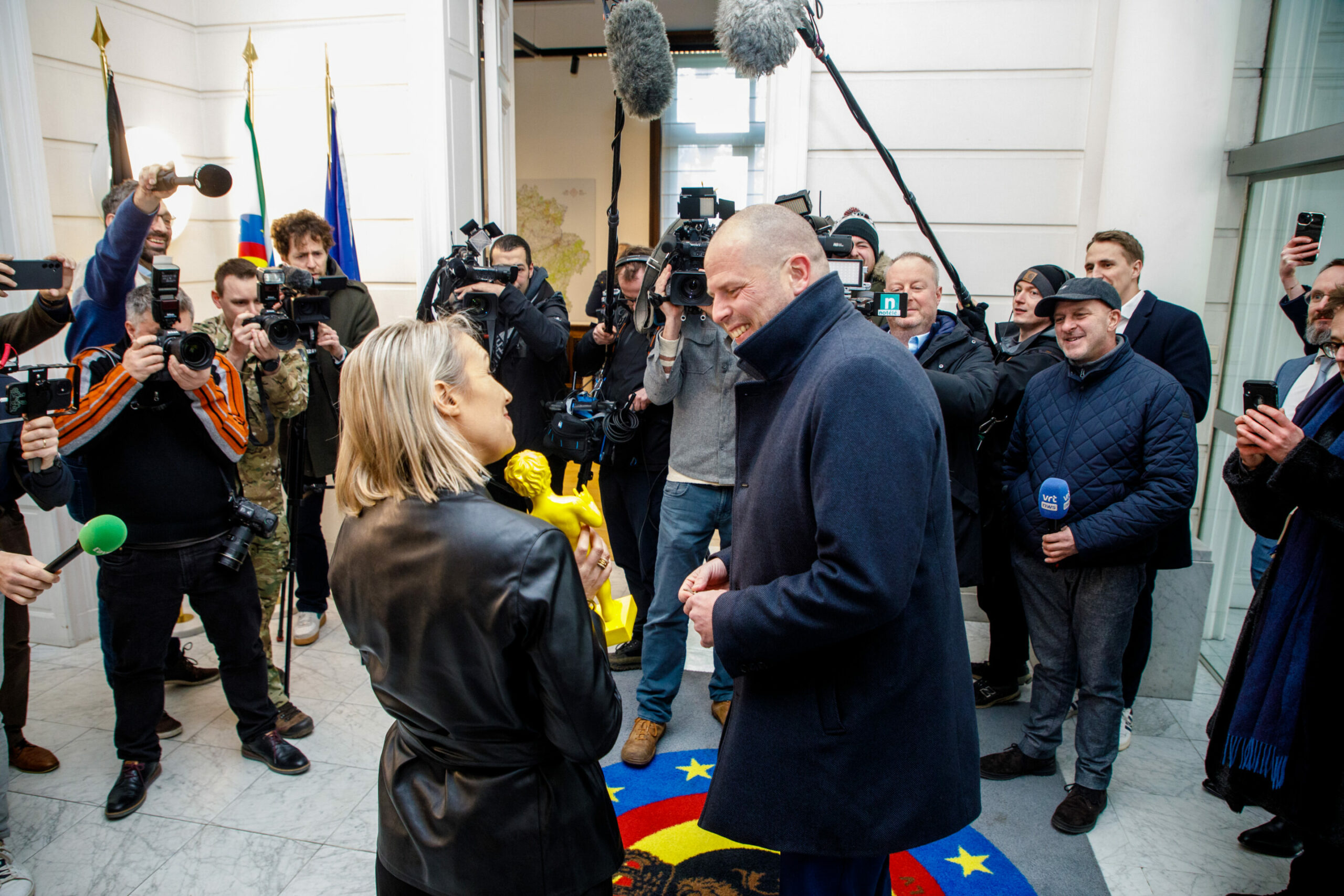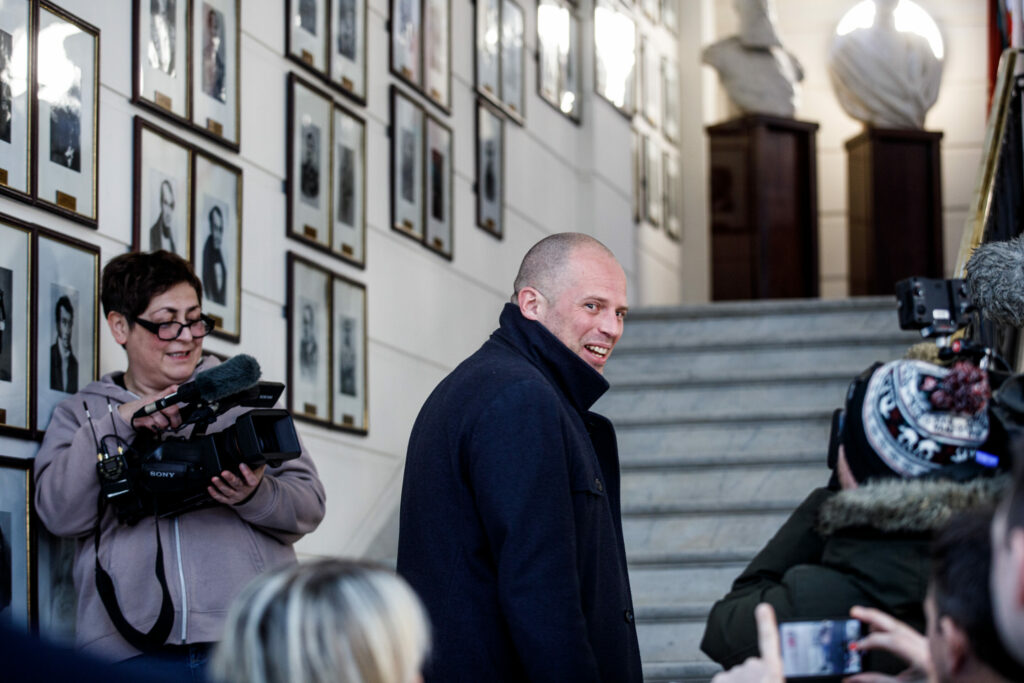Military staff wishing to strike on 13 February (when the planned national strike of public service workers is being organised), are no longer entitled to a day off, said Belgium's new Defence Minister Theo Francken (N-VA).
With this announcement, Francken is revoking a decision by the previous Minister of Defence Ludivine Dedonder (PS). He announced this just before the first Council of Ministers of the new Federal Government on Tuesday morning.
"Dedonder has given all military personnel a day off to go and demonstrate against our government on 13 February. She was not allowed to do that," he said.
The new government is raising the retirement age for military personnel from the current 56 to 67.
'Will not be intimidated'
At the time, former Prime Minister Alexander De Croo stated that the Defence Minister was not allowed to do that. However, according to Francken, "[Dedonder] never withdrew her decision because she wanted to leave that to me. But I will not be intimidated."
He called it "a little political game" by her. "The military does not serve to be used as a political weapon in the hands of bad losers against the government. I want that decision withdrawn today."
He added that the concerns of personnel and trade unions about their status and pensions are justified. "I will consult with them as soon as possible. Without its personnel, defence is nothing."

Outgoing Defence Minister Ludivine Dedonder and her successor Theo Francken pictured during the passing of power to the new Minister of Defense, Monday 03 February 2025, in Brussels. Credit: Belga / Hatim Kaghat
On Monday, the military union ACMP said it was deeply concerned about the pension measures introduced by the new Federal Government and their impact on military personnel.
"The coalition agreement states that the staff is the heart of defence, but with these pension measures, it strikes right at the heart of the military. That’s an increase of eleven years. For some, the impact is even greater, as pilots, for example, can currently retire before 56. This hits a lot of people hard."
Additionally, personnel will now have to work longer for a smaller pension. Currently, civil servants’ maximum pension is calculated based on the last ten years worked, but this calculation will be extended to their entire 45-year career span.
ACMP president Yves Huwart said that these pension measures will have a negative impact on military motivation. "Military personnel expose themselves to physical risks. They jump from planes, descend from trucks and climb over rocks, which can lead to various injuries."
Attractive work?
With the abolition of the disability pension, which protects their salary in such cases, military personnel will start to question their career choice, warned Huwart.
He highlighted the unique nature of military jobs, such as long deployment periods and significant travel distances between home and work.
"Currently, we have a relatively robust status as military personnel. The pension is part of the 'package deal' that keeps people on board. If the government changes that pension, many will leave, and the government will not meet its staffing goals."
The liberal union VSOA Defence shares a similar concern, with its chair Chris Huybrechts warning that the measures will reduce the job's attractiveness and threaten Defence's operational capability.
A VSOA Defence survey indicated that 50% of respondents would immediately leave Defence under the new pension measures. Huybrechts expresses concern for the future, asking, "Which young people will you attract, and who will train them? We are already struggling to keep up."

Credit: Belga/Laurie Dieffembacq
The announced investments, such as a third frigate and additional fighter jets, sound promising, but "we already cannot staff the frigates we have," added Huybrechts.
He also points out that the pension measures will be costly. "The government will save on pensions, but we will maintain the highest salaries for 11 years longer. This will have a significant impact on labour costs."
Both union leaders also criticised the lack of recognition of the unique aspects of military jobs. They are often away from home for long periods and face an average commute of 50 kilometres, with little to no compensation.

